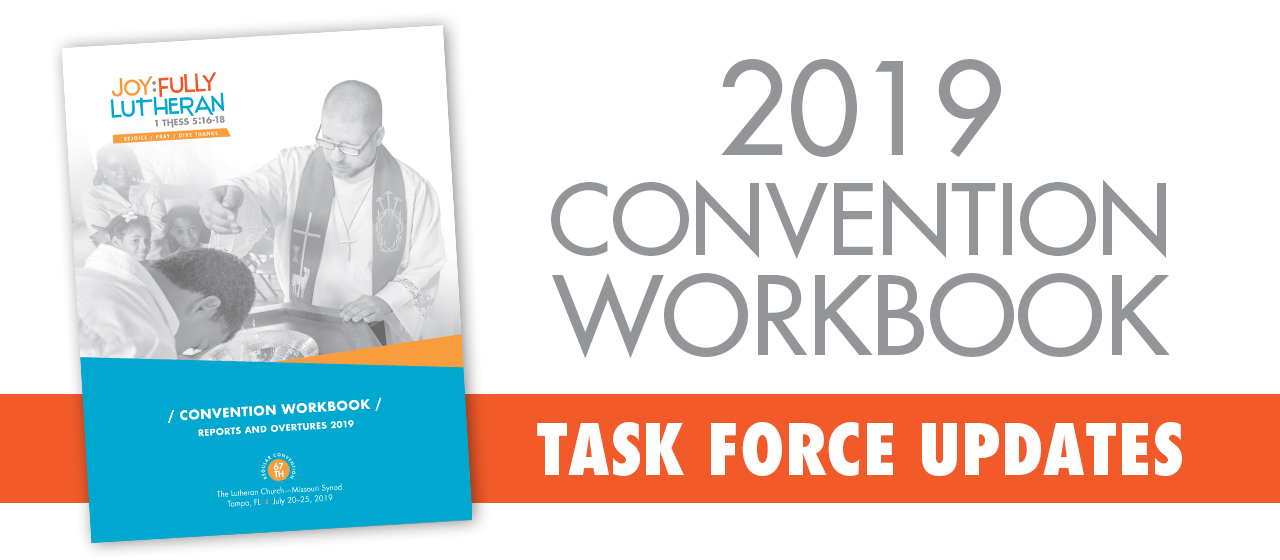Resolution 3-04
LCMS 2016 National Convention

Resolution 3-04 — To Create Task Force for Study of Issues Relating to Procreation, Fertility and Care for Unborn
The task force’s final report begins on page 325 in the Convention Workbook.
Summary
This resolution identified the complexities and ever-changing landscape of procreation, fertility and care for the unborn.
Science and technology have significantly changed since the publication of various LCMS Commission on Theology and Church Relations (CTCR) documents and reports on life issues several decades ago.
The experts gathered on this task force are to identify the important issues that need to be addressed to best help and support families and parents dealing with the issues of procreation, fertility and care of the unborn.
Resolution Text & Task Force Members
Purpose
The purpose of this task force is to gather subject matter experts from the Synod office, Lutherans For Life and the seminaries with laypersons who are experts in the fields of medicine, procreative science, theology, ethics and so on to study issues surrounding fertility and procreation.
The task force was charged to:
1. Gather and arrange points for consideration;
2. Coordinate discussion; and
3. Identify actions leading to the production of appropriate LCMS responses to these issues.
The task force’s report is due by Dec. 31, 2018, and will be included in the 2019 Convention Workbook.
Status Updates
Dec. 8–9, 2017
The task force met Dec. 8–9, 2017. In its discussions, the members noted the breadth of the issues raised both directly and indirectly by Res. 3-04.
Although the issues all relate to human reproduction and tend toward a consideration of technological “advances,” there are also underlying cultural assumptions and questions that challenge the Christian.
The task force agreed that it was important to try to address “foundational matters” relative to these questions and assumptions. For example, the biblical view that parents are blessed with a child as a gift of God faces a competing view today where children are viewed more as a parental reproductive project and an entitlement.
After addressing such substantive and foundational matters, the task force will discuss some of the moral and ethical questions about human procreation and the reproductive technology that is now in use.
It will also seek to “identify actions leading to the production of appropriate LCMS responses to these issues ... with the CTCR and/or other appropriate LCMS entities” (Res. 3-04).
Specific topics may include: (1) infertility (IVF), (2) contraception, (3) embryo adoption and (4) genetic therapy (CRISPER/cas9), among others.
Future meetings are scheduled for May and October of this year.